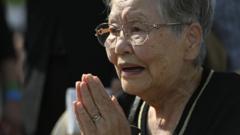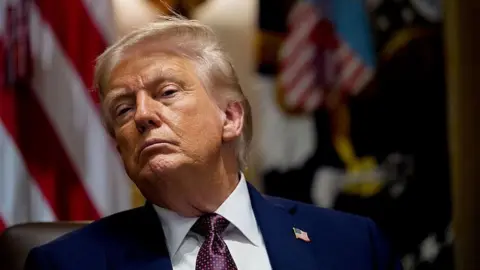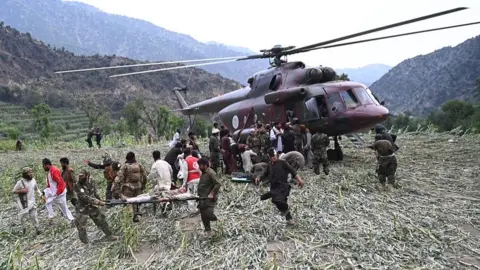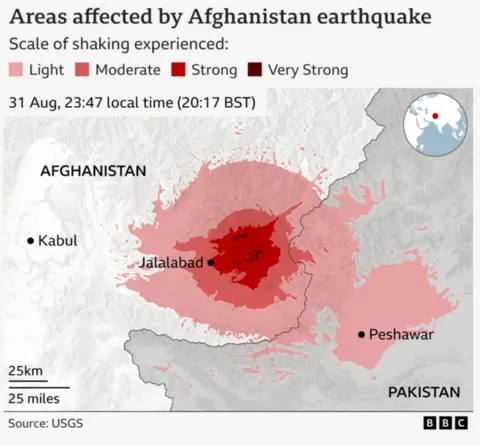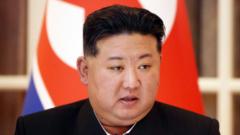On Wednesday, Hiroshima held a poignant ceremony to commemorate the 80th anniversary of the atomic bomb dropped by the United States, which devastated the city on August 6, 1945. The event was attended by Japanese Prime Minister Shigeru Ishiba, alongside international officials and Hiroshima's Mayor Kazumi Matsui, who drew attention to the rising global military tensions and the critical lessons from history that seem increasingly disregarded.
The catastrophic impact of the bomb resulted in over 200,000 deaths, from immediate blast effects to long-term radiation-related illnesses, leaving a lasting legacy of trauma that still affects survivors today. Shingo Naito, a survivor who was only six years old at the time, recounted the horrors his family faced; his father and younger siblings perished, and he witnessed the devastating physical consequences of the explosion firsthand. "My father was badly burned and blinded by the blast," he shared, highlighting the haunting memories that continue to reverberate through the generations.
In his address during the ceremony, Mayor Matsui raised concerns about the nuclear Non-Proliferation Treaty, stating that it is nearing dysfunctionality. He urged the Japanese government to ratify the Treaty on the Prohibition of Nuclear Weapons, which aims to eliminate nuclear arms and was enacted in 2021. While over 70 countries have signed it, major nuclear powers, including the U.S. and Russia, have not, arguing their nuclear arsenals serve as a deterrent against potential threats.
The nuclear debate remains divisive within Japan. Small protests calling for nuclear abolition were seen near the Peace Memorial Park as citizens reflect on the contemporary conflicts abroad. Satoshi Tanaka, another survivor grappling with the aftermath of radiation exposure, expressed deep concern over ongoing violence in places like Gaza and Ukraine, connecting it back to his experiences during the bombing. "We are living alongside nuclear weapons that could wipe out humanity multiple times over," he warned, emphasizing the need for collective action against nuclear proliferation.
The stories and memories shared by survivors like Naito and Tanaka serve not just as personal testimonies but as a call to the world for change, urging leaders of nuclear states to commit to peace and disarmament. The solemn commemoration in Hiroshima thus serves as a reminder of the past while highlighting the urgent relevance of ongoing dialogues about the future of global security and humanitarian safety.

